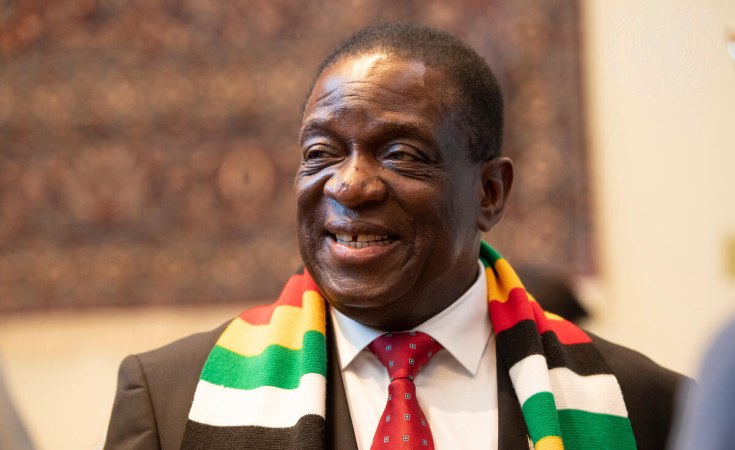American President Joseph Biden has announced an end of the superpower's sanctions regime on Zimbabwe.
The historic move announced on Monday, signals an impending end to America and Zimbabwe's two-decade-long cold war that the ruling Zanu PF has blamed for their failure to reign in its wayward economy.
"By the authority vested in me as President by the Constitution and the laws of the United States of America, I, Joseph R. Biden Jr., President of the United States of America, find that the declaration of a national emergency in Executive Order 13288 of March 6, 2003, with respect to the actions and policies of certain members of the Government of Zimbabwe and other persons to undermine Zimbabwe's democratic processes or institutions, as relied upon for additional steps taken in Executive Order 13391 of November 22, 2005, and as expanded by Executive Order 13469 of July 25, 2008, should no longer be in effect."
Despite the 'unexpected' U-Turn, Biden maintained that America was still concerned about the corruption, political and human rights situation in Zimbabwe.
His decision follows years of lobbying by the Zimbabwean government, regional protests and solidarity from countries friendly to the ruling Zanu PF party.
He added: "Although I continue to be concerned with the situation in Zimbabwe, particularly with respect to acts of violence and other human rights abuses against political opponents and with respect to public corruption, including misuse of public authority, the declaration of a national emergency in Executive Order 13288 is no longer needed.
"Accordingly, I hereby terminate the national emergency declared in Executive Order 13288, and revoke that order, Executive Order 13391, and Executive Order 13469."
According to the US, the Zimbabwe sanctions programme targets human rights abusers and those who undermine democratic processes or facilitate corruption.
Even after the repeal, 14 individuals remain on the sanctions list as determined by the Office of Foreign Assets Control (OFAC).
"The U.S. is imposing sanctions on 14 individuals and entities in Zimbabwe under Global Magnitsky while terminating our Zimbabwe-focused sanctions program. This represents an opportunity for the government of Zimbabwe to undertake key democratic reforms," wrote US State Department spokesperson Matthew Miller.
The 14 include President Emmerson Mnangagwa, Auxillia Mnangagwa, VP Constantino Chiwenga, Owen Ncube Kudakwashe Tagwirei and CIO Deputy Director Walter Tapfumaneyi.
An end to the sanctions regime had been Zanu PF's rallying point since 2003 when it was first effected.
It followed violent land seizures from predominantly white commercial farmers across Zimbabwe, without compensation.
Bloody elections which followed, where Zanu PF militia and former guerrilla fighters targeted opposition supporters and leaders further broke Zimbabwe's relationship with the US and other Western countries.
The 2003, 2005, 2008 Executive Orders blocked all properties of those deemed or purporting to act directly and indirectly on behalf on any of those on America's sanctions list as per its International Emergency Economic Powers Act.
The list once peaked at 77 who included most of Zanu PF's old guard, former First Lady Grace Mugabe too.


